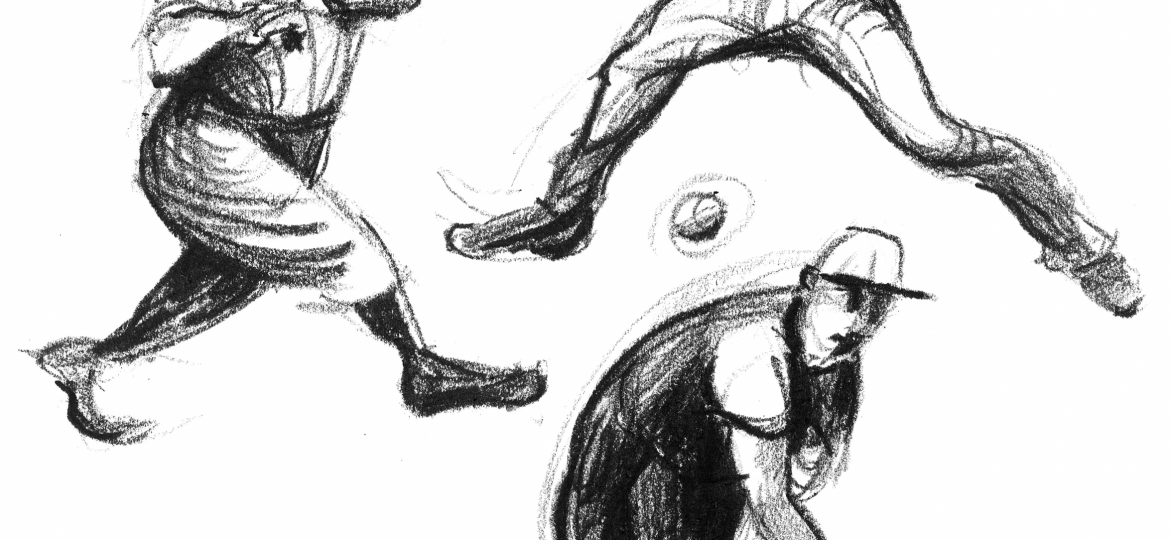
Throughout the entire 2020 regular and postseason, the Tampa Bay Devil Rays were known for making bold decisions. Kevin Cash, their manager, consistently made extensive use of his excellent array of bullpen pitchers. Where one pitcher would normally start a game and pitch for five to six innings, the Rays would remove this starter around the third or fourth inning, much earlier than normal. The removal gave way for a long line of bullpen pitchers suited for specific situations — left-handed pitchers to face left-handed batters, hard throwers to blow past righties and one-pitch specialists with wicked sliders or change-ups.
The Rays had become notorious for meticulously crafting their game plan for when to remove the starting pitcher and how to organize their bullpen, to a fault. When it’s said that Cash had a short leash — he would immediately remove a pitcher after making only one slight mistake — it is not an understatement.
The shortness of this leash would cost the Rays their 1–0 lead in game six of the World Series against the Los Angeles Dodgers, and ultimately the chance at a game seven and a World Series title. The Dodgers, in one inning, completely changed the course of the game and would go on to seal their seventh World Series victory.
It all happened in the bottom half of the sixth inning. Blake Snell, a former Cy Young Award winner, started pitching for the Rays. Through the first five innings, he was nearly perfect. He struck out nine batters, and he only gave up one hit early in the game.
Dodgers’ left fielder AJ Pollock, in his second at-bat, opened the inning. Pollock flew out to right field, another Dodger set down by Snell. The next batter, catcher Austin Barnes, however, smacked a single into center field. Here’s where everything went downhill for the Rays.
Immediately after giving up this hit — only the second conceded by Snell throughout the entire game — Cash walked out of the dugout and took the ball from Snell. The Rays star pitcher was visibly upset about this decision, and in hindsight this frustration was absolutely justified.
To take over on the mound for Snell, Cash chose Nick Anderson, a tall righty with a blistering fastball, a struggling member of the Rays’ bullpen throughout the postseason.
With one out and a runner on first base, Dodgers’ right fielder Mookie Betts came up to bat, their lead-off hitter and a former MVP and World Series champion. Betts had had a slow series up to this point, but that would quickly change. He jumped on one of Anderson’s fastballs and pulled it down the third base line for a double. The Dodgers now had runners on second and third base, with only one out.
Next up to bat was shortstop Corey Seager. Before Seager even got a chance to swing the bat, Anderson whipped a pitch into the dirt that Rays’ catcher Mike Zunino couldn’t stop. The ball escaped, and Barnes scored easily. Now the game was tied, the Dodgers scoring their first run on a wild pitch. Betts moved to third.
With this run scoring, the Rays fielders moved in, pulling close to the infield grass to try and throw Betts out at home on a ground ball. Betts’ speed proved too much, and although Anderson would get Seager to smack a ground ball to Rays’ first baseman Ji-Man Choi, he scored easily, sliding in before Choi’s throw home even hit Zunino’s mitt. Seager ran to first base safely.
So, to recap — after Barnes hit a single off of Snell and Cash immediately removed him, Anderson came in to pitch and gave up a double to Betts, a wild pitch that allowed a run to score and then a ground ball that would fail to catch Betts at the plate. Still one out, and a runner on first base. Rays now losing 2–1 after starting the inning up 1–0.
The next two Dodgers batters would fly and ground out, respectively, bringing the inning to an end. The stark contrast between the pitching of Snell and Anderson would prove too much for the Rays, who, now down 2–1, couldn’t generate another run and would end up losing 3–1 after Betts hit a home run later in the game.
The decision to remove Snell from the game in the sixth inning will be questioned for years to come. In attempting to stick to his well-known strategy of going to the bullpen early and often, Cash would ultimately cost his team the chance to hang on to their slim lead through the near perfect, rhythmic pitching Snell had demonstrated.
It was clear Snell had the number of the Dodgers hitters. He tied Hall of Fame pitcher Sandy Koufax for the most strikeouts in a World Series game through the first five innings, and he was clearly in a groove going into the Dodgers’ lineup for the third time. For a team that had struggled throughout the entire series to generate consistent offense, the Rays had to leverage any pitching advantage they could. It should have been clear that, during this game, Snell had that pitching advantage, and only his individual performance could go toe-to-toe with the Dodgers’ own stellar bullpen.
Baseball is a game of decisions, some bigger and costlier than others. While no decision is perfect the moment that it’s made, I, the critic — alongside the grace of hindsight and the wisdom of a spectator — can confidently determine that Cash’s decision to take Snell out of the game was a poor one. That one decision during that one inning would go on to shift the entire fate of the World Series, leading to the sullen demise of the Tampa Bay Rays.
marand1@stolaf.edu

